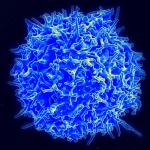Mental health is a persistent problem, erupting into our consciousness when there is a mass shooting event or a homeless individual goes rogue. But for the most part, that is the tip of a much larger iceberg that affects many of us.
Mental Health & Society
Unless your head is firmly implanted in your rectum, there can be little doubt about how COVID has devastated the world (if it is implanted up there, please let us know how the view is).
Misinformation and disinformation have emerged as two of the most important threats in the world today.
In the mediocre but strangely prescient James Bond movie Tomorrow Never Dies, the villain is a media mogul named Elliot Carver who tries to instigate a war between the UK and China to grow his empire.
For as long as anti-vaxxers have been around, the American Council on Science and Health has used sound science to expose their lies and distortions.
Ever since the coronavirus crept onto the world stage, we have been suffering from two simultaneous pandemics: One from the virus and another from mis- and disinformation.
When I was a graduate student working on my PhD at the University of Washington (UW), we would receive email notifications once a year letting us know that animal rights' activists were in the area.
The early bird gets the worm. Early to bed and early to rise, makes a man healthy, wealthy, and wise. There are plenty of platitudes that justify the widespread belief that getting up early is the best way to start the day.
I collect science textbooks. Some of the best ones I have on my shelf are Janeway's Immunobiology, Lehninger Principles of Biochemistry, Casarett & Doull's Toxicology, and Sherris Medical Microbiology.
By James Smoliga, High Point University












